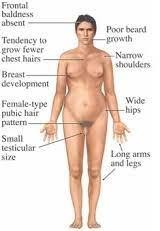The nurse in the women's health clinic has four patients who are waiting to be seen. Which patient should the nurse see first?
A 42-yr-old patient with secondary amenorrhea who says that her last menstrual cycle was 3 months ago
A 19-yr-old patient with menorrhagia who has been using superabsorbent tampons and has fever with weakness
A 22-yr-old patient with persistent red-brown vaginal drainage 3 days after having balloon thermotherapy
A 35-yr-old patient with heavy spotting after having a progestin-containing IUD (Mirena) inserted a month ago
The Correct Answer is B
Choice A rationale: The 42-yr-old patient with secondary amenorrhea may have menopause, pregnancy, or a hormonal disorder. This is less urgent compared to the 19- year old patient.
Choice B rationale: This patient may have toxic shock syndrome, which is a life- threatening complication of tampon use that can cause organ failure and shock. The nurse should assess the patient's vital signs, remove the tampon, and initiate fluid resuscitation and antibiotic therapy.
Choice C rationale: This patient may have an infection or a complication of the balloon thermotherapy, which is a procedure to destroy the endometrial lining of the uterus and is not an emergency compared to the 19 year old.
Choice D rationale: This patient may have a displacement or perforation of the IUD, which is a contraceptive device that releases progestin into the uterus. However, this is not urgent compared to the 19 year old.
Nursing Test Bank
Naxlex Comprehensive Predictor Exams
Related Questions
Correct Answer is A
Explanation
Choice A rationale: Cri du chat syndrome involves a high-pitched cry in infants and other distinct physical and developmental features, but it doesn't present with the described symptoms.
Choice B rationale: Klinefelter syndrome, characterized by an extra X chromosome (XXY) in males, typically presents with small testicles, gynecomastia (enlarged breast tissues), sexual dysfunction, and altered body proportions, such as long legs and a shorter trunk, aligning with the client's symptoms.
Choice C rationale: Patau syndrome (Trisomy 13) manifests with severe developmental issues, facial abnormalities, and other physical malformations, but the described symptoms are not typically associated with this syndrome.
Choice D rationale: Turner syndrome involves females with a missing or partially missing X chromosome (45, X), resulting in specific physical features and medical problems not consistent with the described symptoms in a male client.

Correct Answer is A
Explanation
Choice A rationale: this is the correct answer since the darkened spots in the uterus represent endometrial-like tissue growths within the muscular wall of the uterus (the myometrium).
Choice B rationale: This picture shows leiomyomas, also known as fibroids, which are benign tumors that develop from the smooth muscle cells of the uterus. They can vary in size, number, and location within or outside the uterus. They can cause symptoms such as heavy bleeding, pelvic pressure, pain, and infertility.
Choice C rationale: This is endometriosis which is a condition where tissue similar to the endometrium (the lining of the uterus) grows outside the uterus, such as on the ovaries, fallopian tubes, pelvic wall, or bowel. This tissue responds to hormonal changes and bleeds during the menstrual cycle, causing inflammation, pain, and sometimes infertility.
Choice D rationale: This image shows a normal uterus.
Whether you are a student looking to ace your exams or a practicing nurse seeking to enhance your expertise , our nursing education contents will empower you with the confidence and competence to make a difference in the lives of patients and become a respected leader in the healthcare field.
Visit Naxlex, invest in your future and unlock endless possibilities with our unparalleled nursing education contents today
Report Wrong Answer on the Current Question
Do you disagree with the answer? If yes, what is your expected answer? Explain.
Kindly be descriptive with the issue you are facing.
